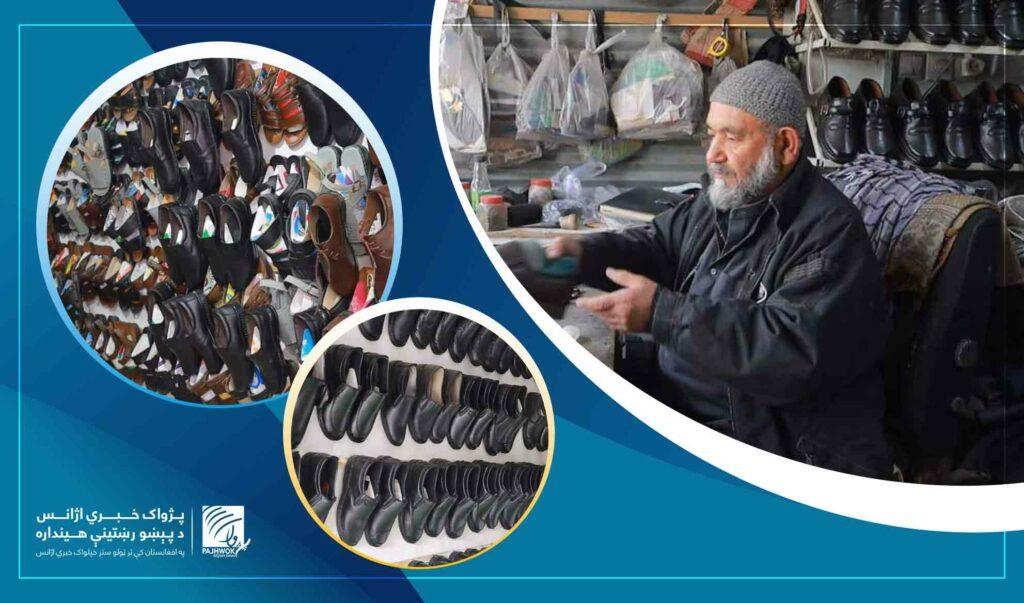MAZAR-I-SHARIF (Pajhwok): The Chamber of Craftsmen and Shopkeepers in Balkh says 108 shoe-manufacturing factories are currently operating in the province, collectively producing 12,000 pairs of shoes on a daily basis.
Raz Mohammad Hamraz, deputy director of the Chamber of Craftsmen and Shopkeepers, told Pajhwok Afghan News the shoe-manufacturing industry was growing and the province had achieved 80 percent self-sufficiency in the sector.
“In the current winter season, factories in Mazar-i-Sharif are producing 12,000 pairs of shoes daily, meeting 80 percent of domestic needs. More people are now turning to locally made products,” Hamraz noted.
Meanwhile, shoe manufacturers in the province acknowledge a spike in production during the winter season but urge the government to reduce customs duties on raw materials to further support the industry.
Mohammad Sabir, a shoe manufacturer in the provincial capital, said he had been in the business for several decades. Besides shoes, his factory also produces sandals, slippers, belts and other types of footwear.
“With the arrival of winter, our production has increased. We produce various types of shoes and request the government to lower tariffs on raw materials,” he said.
Mohammad Rafi, another shoe producer, also said local shoes were of good quality and affordable, gaining popularity with consumers. He urged citizens to support local products to beef up the country’s economy and domestic industry.
Meanwhile, residents of Mazar-i-Sharif, the provincial capital, also acknowledge that domestically-produced shoes were of high quality and more affordable than imported alternatives.
Roz Ali, a local resident, urged people to purchase locally made shoes.
He noted, “Foreign shoes in stores may cost around 1,500 afghanis, but they don’t last a year. However, domestic shoes, which are cheaper, have better quality and durability. People should buy local products.”
Meanwhile, Director of Commerce and Industry Amir Mohammad Muttaqi listed strengthening the country’s economy through industrial development as a priority for the government.
“In the past, many low-quality products were imported into the country because there was little local production. However, Afghanistan now produces high-quality goods that can compete with foreign products,” he said.
The Commerce and Industry Department reports around 700 large and small factories are currently operating in the province, providing employment to over 30,000 people.
kk/mud








